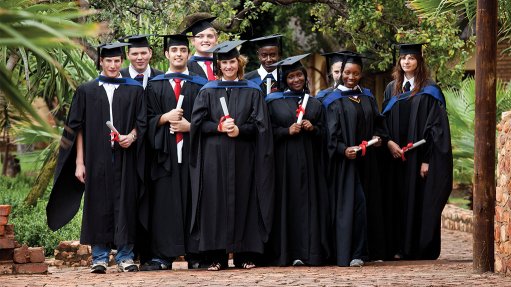
Fifty-six per cent of engineering professionals surveyed in financial services provider PPS’s latest survey indicate that there are not enough job opportunities available for young engineers in the local sector.
Compared with the same period a year ago, 46% of respondents said there were not enough opportunities for young engineers. “The figure has now increased by ten percentage points, which indicates that this is a growing issue within the profession,” PPS professional associations manager Macy Seperepere noted.
An Engineering Council of South Africa report indicated that South Africa currently had one engineer per 2 600 people, while international standards required one engineer for every 40 people. This figure, once again, highlighted that there was a dire shortage of engineers in the country, she pointed out.
Further, she highlighted that 94% of respondents were concerned about the lack of mathematics and science graduates in the country. “It is clear that education and training of engineering students is one of the key concerns for the majority of South African engineers.”
Asked about their confidence in government to effectively deliver on its promise regarding infrastructure spend, the survey respondents revealed a confidence level of only 33%. This figure dropped one percentage point from the previous quarter.
South African Institution of Civil Engineering CEO Manglin Pillay said the survey also highlighted the dire need for university and university of technology students to obtain experiential learning. “Many companies simply do not have the funding to employ or even mentor these young engineers anymore.
“Following the ‘feesmustfall’ protests across the country, it is vital that funding models for student training are revisited. When it comes to the engineering profession, there is certainly a lack of financial support for education and training of engineering graduates.
“This, in turn, results in young engineers being left unemployed once they have earned their respective degrees as they do not have the necessary technical skills required for the job,” he explained.
Pillay believed tertiary institutions needed to increase the entry requirements for students applying for an engineering degree, and possibly needed include a minimum B-symbol pass mark for matric maths and science. “The quality of engineering faculties at South African universities must meet global standards. This could also be reinforced by industry associations to ensure that engineering remains a skill of excellence.”
He added that government was not rolling out the necessary infrastructure projects to contribute to job creation and economic stability. “To address this concern, the services of highly experienced engineers at all tiers of government need to be employed to ensure the necessary roll-out of infrastructure spend and that the infrastructure budget is allocated accordingly.”
He explained that there were various engineering professionals and civil engineers, in particular, involved in developing necessary infrastructure to solve the country’s ailing energy situation, with prime examples being power stations and wind and solar farms. “It is, therefore, essential that the best professionals for the job are employed and involved in these projects.”